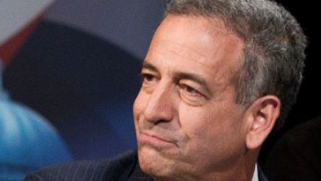The Limits And Importance Of Campaign Finance Reform

Russ Feingold uncorked a major speech last night at Netroots Nation focusing on his longtime themes of campaign finance reform warning of the brave new world of Citizens United and Super PACs. I have to say that reviewing the thoughts of such a hardcore campaign finance reformer mostly reminded me of my longtime skepticism about this cause.
My starting point is that the "money isn't speech" mantra clearly has some real problems with it. It's true that a law saying "Noam Chomsky can't publish anymore books" isn't the exact same thing as a law saying "Nobody can pay money to buy a Noam Chomsky book or donate money to non-profit institutions that employ Noam Chomsky." But that's still an effort to censor Noam Chomsky. Right? Money isn't speech, but we're talking about enacting regulations whose purpose is to limit people's ability to disseminate Noam Chomsky's ideas. Shifting the law to make it less Chomsky-focued makes it less unfair. We could have an even-handed rule prohibited the sale or financing of foreign policy commentary in general. But making the rule fair and agent-blind in that case also means it's a more draconian censorship regime.
The issue, most broadly, is that money is a big help when communicating with the public. Restricting a person's ability to obtain money for the purpose of communicating with the public is a means of restricting that person's ability to communicate. It is true that this means that people with more money have a disproportionate impact on the public dialogue just as they have disproportionate access to big houses and fancy dinner and quality medical care. And you don't have to be happy about any of those facts. But they're part of a general question of inequality and economic justice.
Now on the pro-reform side, what I will say is that even though you can't just waive away free speech objections by saying that "money isn't speech" you can certainly restrict the permitted activities of certain kinds of corporate forms. Least controversially (for now) a non-profit organization that wants to be eligible for tax-exempt status can't be primarily engaged in political activities. That's fine by me. Publicly traded corporations are already required to engage in lots of different kinds of financial disclosure, and beefing up disclosure requirements about political spending would be a very reasonable extension of that. People with a sincere effort to somewhat restrain the influence of big business over the political process should be able to come up with any number of ways of doing so that don't run afoul of free speech and don't rely on implausible claims about the vast metaphysical gap between money and speech. But it's still the case that money is useful when you're trying to communicate, so people with more money will have an advantage in the communications sphere unless you engage in really problematic curtailments of freedom.


Matthew Yglesias's Blog
- Matthew Yglesias's profile
- 72 followers



